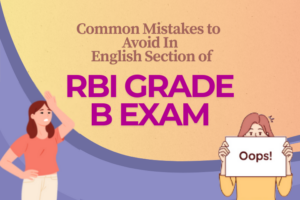Dear Students,
General awareness is an important section that can help you get the maximum time You need not perform complex calculation to settle for the correct option so, it is the best to be ready with the facts and figures in advance. For RRB JE 2019, important awards, current affairs, history, geography, general science, economy and static GK is the main part. To let you have an information about all important sections of GA, this post is to provide you with one of the important topics related to REVENUE ADMINISTRATION OF THE BRITISH. Grab the below given important points related to this particular topic.
Purpose of a vote-on-account or an interim budget or Full budget:
Article 266 of the Constitution mandates that parliamentary approval is required to draw money from the Consolidated Fund of India.
Generally the tradition in an election year is to present an Interim Budget or Vote-on-account. The purpose of a vote-on-account or an interim budget is simply to allow the government of the day to continue running till India votes.
A vote-on-account only deals with the expenditure side of the government’s budget. while an Interim Budget is a complete set of accounts, including both expenditure and receipts, akin to a full budget.
The full budget is presented by the new government after the elections.
Difference between a ‘Vote-on-account’ and an ‘Interim Budget’ and ‘Full Budget’…..
Vote-on-account:
Vote on Account is a grant in advance to enable the government to carry on until the voting of demands for grants and the passing of the Appropriation Bill and Finance Bill. Vote on Account enables the government to fund its expenses for a short period of time or until a full-budget is passed by incoming government. A ‘Vote on Account’ cannot alter direct taxes since they need to be passed through a Finance Bill.
Vote on Account is passed after general discussion on the Budget. Normally a vote-on-account is treated as a formal matter and passed by Lok Sabha without discussion.
Note: Vote on account is as per provisions of Article 116 of the Constitution.
Normally, the Vote on Account is taken for two months only. But in an election year or when it is anticipated that the main Demands and Appropriation Bill will take longer than two months, the Vote-on-account may cover a period exceeding two months. Normally this period does not exceed six months, as that is the maximum gap possible between two sittings of Parliament.
The sum of the grant would be equivalent to one-sixth of the estimated expenditure for the entire year under various demands for grants.
Interim Budget:
An interim Budget is a complete set of accounts, including both expenditure and receipts. But it may not contain big policy proposals. As per the convention, the government does not introduce any new service, nor does it bring Finance Bill or present the Economic Survey in an Interim Budget.
Note: The incoming government has the freedom to change the estimates in the Interim Budget when it presents the final budget after taking office.
Full Budget:
The Union government’s Annual Financial Statement or the Statement of the Estimated Receipts and Expenditure for each financial year is popularly known as the Budget. Through Budget, the government prioritises its total spending, categorised under two broad heads: plan and non-plan.
Budget is the popular name for the ‘annual financial statement’ that has been dealt with in Article 112 of the Constitution.
In the Budget, fresh taxes may be imposed, old ones may go. Direct taxes like income tax and indirect taxes are both open to change (A vote-on-account presents an estimate of expenditures to be sanctioned by the exchequer till the Budget is passed.)
Overall, the budget contains the following:
1. Estimates of revenue and capital receipts;
2. Ways and means to raise the revenue;
3. Estimates of expenditure;
4. Details of the actual receipts and expenditure of the closing financial year and the reasons for any deficit or surplus in that year; and
5. Economic and financial policy of the coming year, that is, taxation proposals, prospects of revenue, spending programme and introduction of new schemes/projects.
Note: Under Article 112 of the Constitution, the budget, which is presented by means of the Financial Bill and Appropriation Bill, has to be passed by the House before it can come into effect on April 1, the start of financial year.
You may also like to Read:
- Study notes of banking awareness for IBPS Exam
- More questions of banking awareness for bank exams
- More Current affairs questions





 Simple Tips to Avoid Common Mistakes In ...
Simple Tips to Avoid Common Mistakes In ...
 Important Topics & Shortcuts for IDB...
Important Topics & Shortcuts for IDB...
 How to Prepare for Quantitative Aptitude...
How to Prepare for Quantitative Aptitude...





